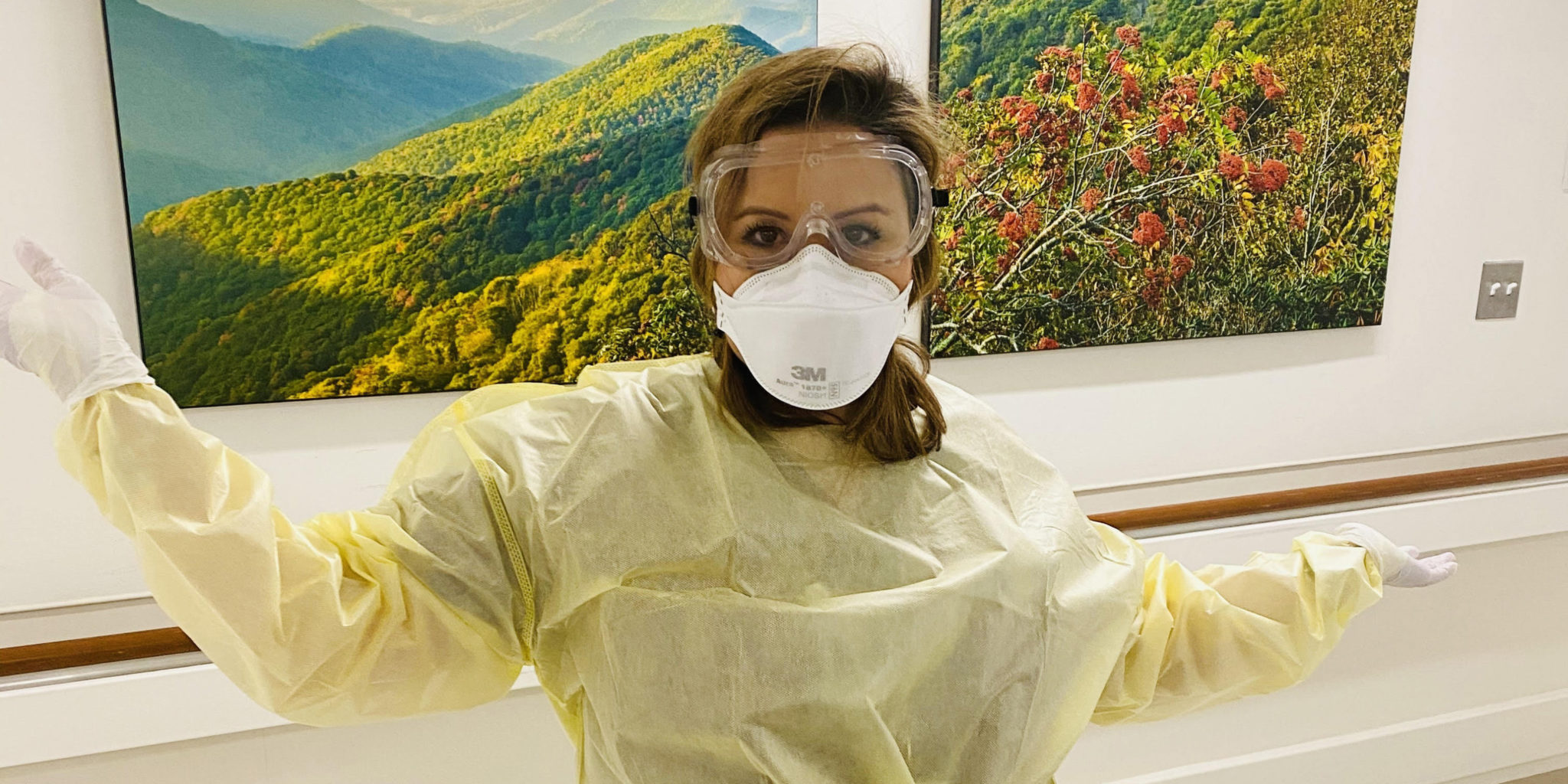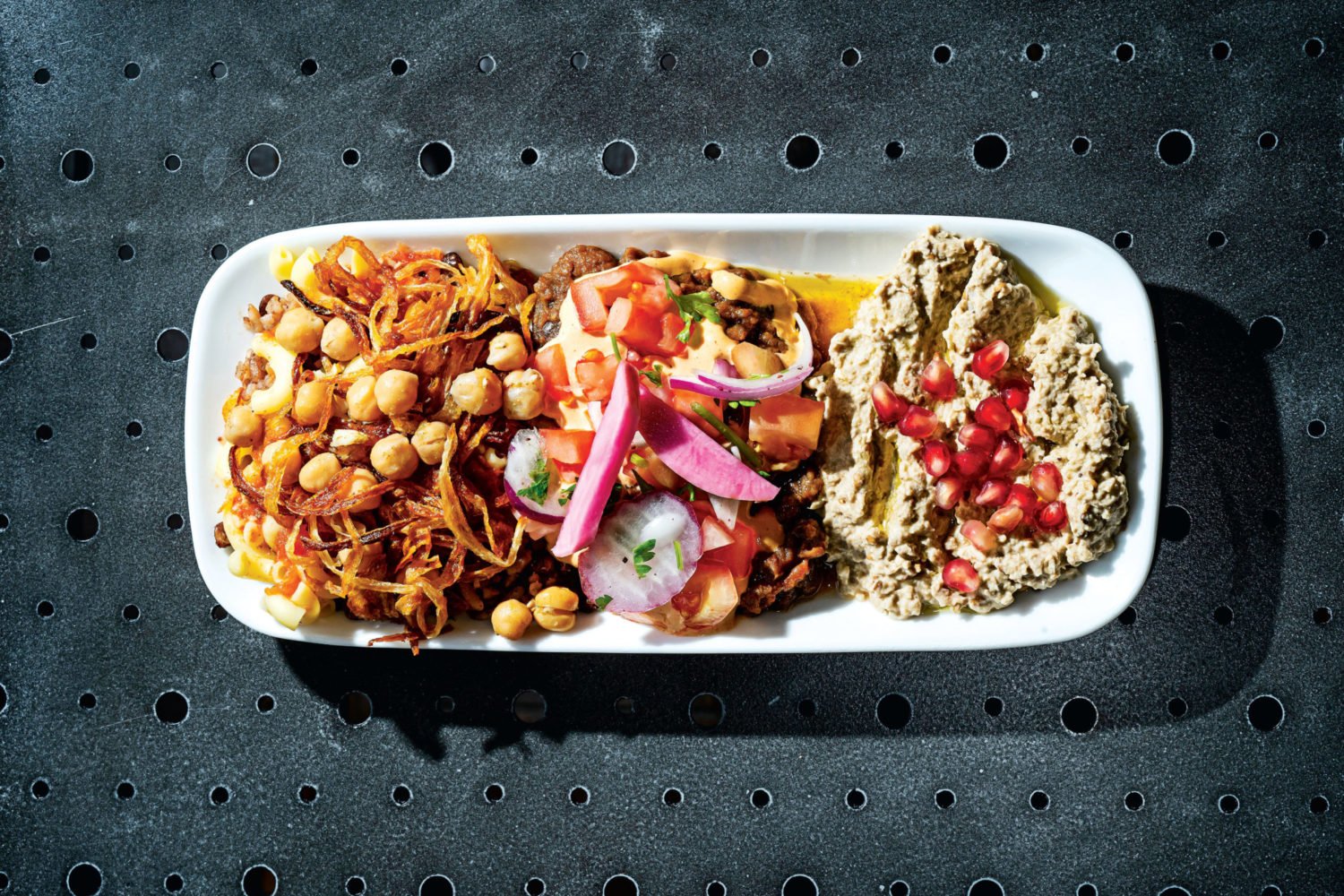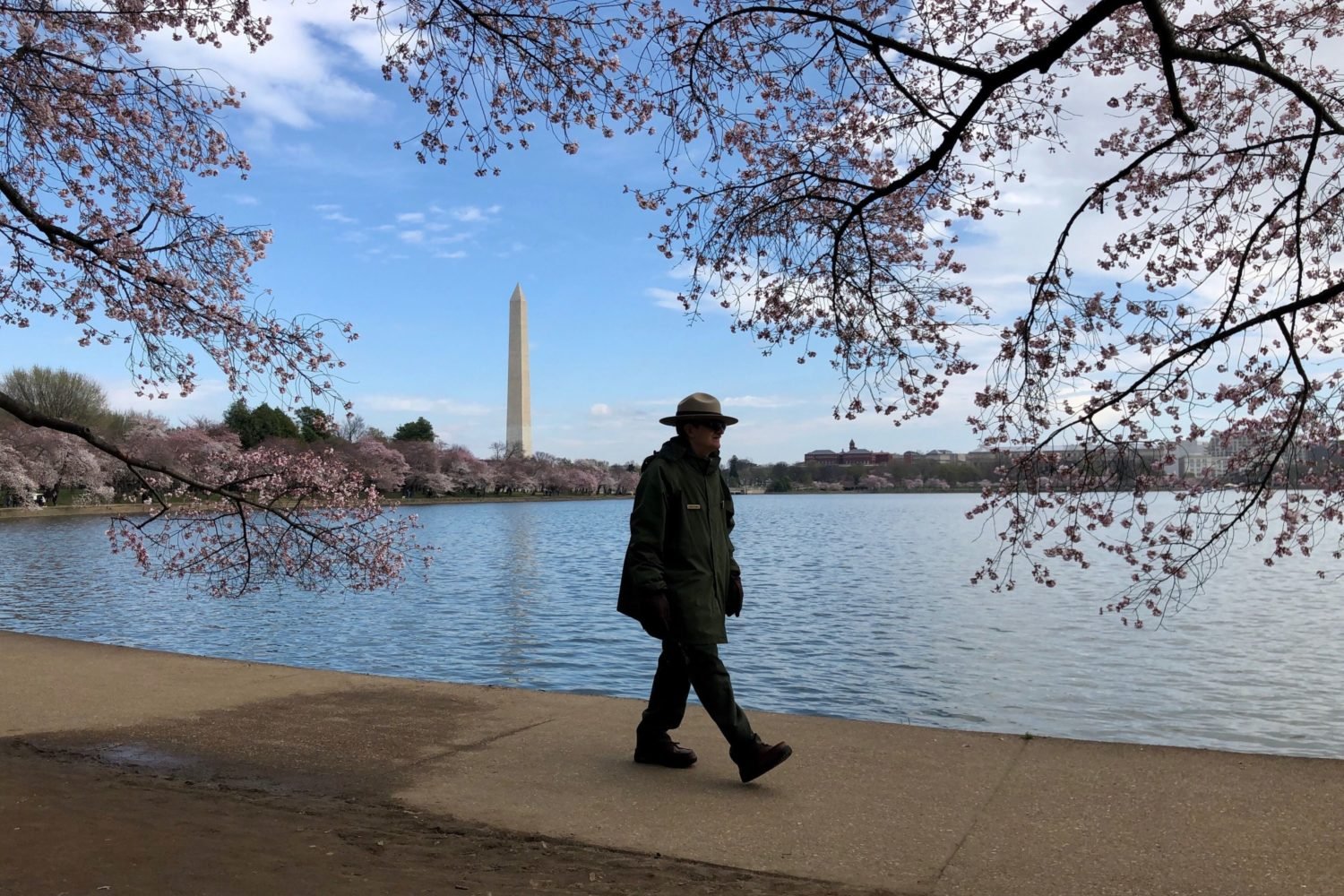About Coronavirus 2020
Washingtonian is keeping you up to date on the coronavirus around DC.
Furkan Shinaishin is an ER physician at Inova Loudon hospital who’s been working the night shift during the pandemic. We chatted with her about how she’s been able to balance the stresses of her job with observing the month of Ramadan.
“I’ve been working as an emergency physician since 2006. A typical day is bouncing between stable and unstable patients; it’s anything from a woman having a miscarriage to someone having a psychotic break that you have to sedate. We’re on our feet for most of the shift. It’s a lot of physical work as well as mental labor.
“I was really nervous when the pandemic first started, because we kept hearing about shortages of PPE. Fortunately, our hospital never had a shortage of that, so I’ve always felt okay from a safety standpoint, but it is a bit mentally draining. You see people posting on Facebook, ‘Oh, it’s not that bad, people are exaggerating.’ And then you walk into the ER and see that patients one through 18 are all positive for Covid-19.
“Our practice has changed over the last several weeks. Our thinking at the beginning of this pandemic was if someone comes in with fever, cough, shortness of breath, those are the patients you need to worry about and that’s the patient you would put on your own mask for. Then we started to see patients coming in with vomiting and diarrhea that was oftentimes Covid. So now we’re at the point where we’re masked 100 percent of the day—when we’re sitting at our desks, when we’re walking to the cafeteria, you just do not take that mask off at all. And when you’re getting ready to go see what you believe is a Covid patient, you put on your N95, put your surgical mask on top, your goggles, your face shield, your hair cap, your gown, your gloves. You’re really layered up, kind of looking like Darth Vader. I worked all weekend and I was dressed like that for probably 80 percent of my shift. It’s really draining, and you feel dehydrated because you don’t want to take your mask off to drink water—every time you do, you risk self-contaminating.
“I’ve fasted for Ramadan since I was 10 years old; I remember being a little kid and being teased about what I was doing. [Other than when I was pregnant or nursing], I’ve always fasted. It’s a thing my family always did together. I attempted to fast for a few days [this year] while I was working, and I decided I couldn’t do it. It wasn’t safe for me, it wasn’t safe for patients. For people who don’t know, [the fast lasts as long as the sun is up and] you can’t even drink water. We’re close to summer, so the fasting days are over 15 hours, and I was feeling exceedingly dehydrated; you’re sweating all the time wearing the extra layers of protective clothing. I felt the best decision was to stop fasting on the days I work and make up those days later, which we do have permission for in our religion.
“[A big part of Ramadan is developing a closer connection to God.] I’ve always been of the mindset that you can be spiritual without specifically getting out your prayer rug, putting on your scarf, and going up and down in prayer. I believe you can worship and appreciate God when you take a walk and look at the beautiful trees and flowers, which I’ve tried to do during the pandemic.
“I think the pandemic has lended the opportunity for appreciating God in less structured ways. One of the things I find myself doing at work is praying to God for these patients and their families. I’ve been doing some moonlighting in the ICU, and I’m especially praying for those patients. You’ll see people who have been in the ICU for five days, ten days, and they haven’t had a single visitor or family member. Some of them are dying, and there’s nobody to hold their hand, and that’s heartbreaking for me. Before this, if someone was dying you’d have their spouse holding their hand or their son or daughter caressing them. There’s none of that now. People are dying alone, oftentimes with a nurse or doctor holding their hand.
“It’s tragic, and I find myself reflecting more on life and God when I see these things happening. As I see these patients, I’m praying a lot more now than I ever did before. I find myself appreciating and thinking about God more than I did during any other Ramadan. It’s like an all-day thing now; I find myself subconsciously communicating with Him in my mind.
“I miss being able to get together with everyone for the iftars, the breaking fasts. The days of fasting are long, and arduous, and boring a lot of the time, so people really look forward to the iftars. They’ve always been these large gatherings, and it’s a way to share in the experience with other people. There’s a lot of camaraderie; everybody’s hungry and [as the sun goes down] it’s like every single night is a New Year’s Eve ball drop. It’s a very social month. After [prayers at the mosque] around midnight, people would congregate at IHOP or a kebab place or hookah bar and continue to eat and smoke until it’s time to start fasting again. It’s always been a very fun month, and everyone has always made sure nobody is alone during Ramadan.
“I haven’t had too much energy to be creative in making substitutions for our usual fun. I have two toddlers, and the sun setting is pretty close to their bedtime, so I can’t really sit on Zoom and have an hourlong talk. My parents live close by in Vienna, but my dad’s 87 and my mom’s 76; I feel like I’m the person that needs to stay away from people, I wouldn’t want to put my parents in any sort of risk by visiting them for iftar.
“I’ve just kind of accepted that this Ramadan is a different Ramadan. I’m not going to try to restructure it and try to imitate what it’s been like in other years, because it’s just never going to feel the same. I’m just accepting it for what it is and going on with life.”
This interview has been lightly condensed and edited for clarity.




















